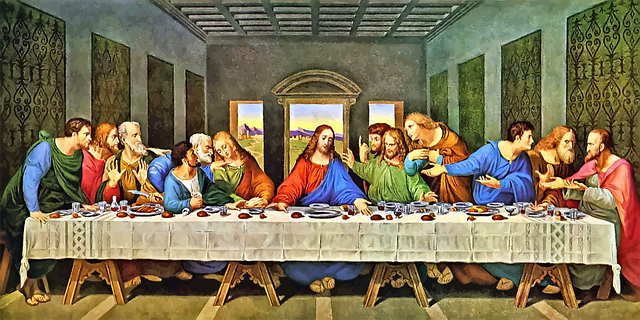
There are people today who claim to be apostles and prophets and actually add these titles to their names. “Apostle so and so will be ministering in this church”. “Prophet so and so said there will be an earthquake.” They claim that the 5 fold ministry has been restored. Does the Bible teach us to expect apostles and prophets today or were they specifically for the early church? If they were for the early church only, then what do we conclude about modern day “apostles” and “prophets”? Misguided souls or malevolent seducers?
Main Points
-
- An apostle’s job was to establish the doctrines of the new covenant.
- A prophet’s job was to reveal God’s plan for mankind.
- These things have already been done.
- Therefore there is no need for apostles and prophets today.
DOWNLOAD FREE CHAPTERS FROM OUR NEW BOOKS
APOSTLES
Definition
The word apostle means ambassador, someone who was sent on behalf of another for a specific purpose. The one sent usually carried the full authority of the sender. Those sent by God with His message were apostles.
The word apostle is used in different ways in the NT. Sometimes it refers to a special group of people who held the office of the apostle (1 Cor. 12:28; Eph. 4: 11). The original 12, and later, Matthias (Acts 1:26), were clearly distinct from other apostles. They were granted special rewards in the New Jerusalem (Matt. 19:28; Rev. 21:14) that no one else could attain – not even Paul. Clearly these 12 apostles were unique.
But there were also other apostles who were commissioned by Christ, Paul being the most noteworthy. In 1 Cor. 15:7,9 Paul indicates that one of the criteria for being an apostle was to have seen Jesus and been personally commissioned by Him. This was true of the 12 and also Paul. I refer to these as the major apostles.
More broadly, those who worked with these major apostles were also called (minor) apostles. e.g. Barnabas (1 Cor. 9:6).
Function
Ephesians 2:20
having been built on the foundation of the apostles and prophets, Jesus Christ Himself being the chief cornerstone
Contrary to popular opinion, the apostles’ job was NOT to plant churches. This fell under their jurisdiction but was not their primary function. Their main function was to establish the faith. Jesus Christ died once and for all to become the chief cornerstone of the Christian faith (Eph. 2:20). The purpose of the apostles was to establish the faith and build a doctrinal foundation on which the church would be based. They were specially commissioned by God to do this.
In John 14:26; 16:12-14, Jesus promised the apostles that the Holy Spirit would come and reveal to them what they needed to know. People incorrectly apply these verses to us and teach that the Holy Spirit could reveal anything to us, including answers to a test.
In an INDIRECT sense these verses apply to all of us, in that the Holy Spirit teaches us how to apply God’s Word (already written) and brings it to our remembrance. But these words were DIRECTLY spoken to the original apostles who physically heard Jesus. This promise was fulfilled when the Holy Spirit inspired the apostles to write what Jesus said and what was yet to be said (e.g. 1 Cor. 7:10, 12). Thus it was important for them to have physically seen Him. Later on Paul was commissioned as an apostle to the Gentiles in the same way Peter was apostle to the Jews (Gal. 2:7).
Primary purpose of apostles
To put is loosely, the primary job of the apostles was to give us the New Testament. Every book in the NT was written by an apostle or a close associate of the apostles. Jesus gave us the New Testament (covenant) through His blood, the apostles gave us the New Testament (doctrine) through their writings and teachings. This is the meaning of Eph. 2:20. Once that foundation has already been laid (Jude 3), it is time to build on it. The foundation does not have to be laid again, anymore than Christ has to die again.
Therefore there is no need for apostles today. Now it is time for pastors, evangelists and teachers to build. 1 Cor. 3:5-10 illustrate the difference between an apostle and a teacher. Paul laid the foundation, Apollos built on it.
Thus in the primary sense there are no more apostles. However people who establish churches, heads of denominations etc. may call themselves apostles, they just cannot claim to be infallibly sent by God to bring new revelation to the body of Christ, as were the major apostles of the Bible. Paul’s writings were infallible (1 Cor. 2:13; 14:37; 1 Thess. 2:13; 2 Tim. 3:16 cf. 2 Pet 3:15, 16 where Peter placed Paul’s writing on the same level as the Old Testament). The same cannot be said of modern day “apostles”.
PROPHETS
Definition
A prophet was someone who spoke authoritatively on behalf of God. Their message usually consisted of present exhortation or warning based on future prediction.
Function
In the OT, prophets were God’s primary means of communicating to the people. They did not have the indwelling Holy Sprit, so they needed revelation via 3rd party. 2 Pet. 3:2 seems to say that New Testament apostles were equivalent to the Old Testament prophets. Although there were prophets in the church, NT prophets were different from the OT prophets. Much of the writings of OT prophets were canonical (they became scripture). In the NT, there is canonical prophesy, although to a lesser extent than in the OT; as well as non-canonical prophesy.
The book of Revelation is an example of canonical prophesy. Agabus’ 2 prophesies (Acts 11:28; 21:10) and those given in the Corinthian church were non canonical in that they were not as binding on believers as scripture. Paul actually chose to disregard one of Agabus’ prophesies (Acts 21: 13, 14). Non-canonical prophesy is directed to specific groups of people or congregations under certain circumstances. It does not apply to all believers of all time. Let it be said though that both, if genuine, are God’s words.
Prophets vs Prophesy
The office of the prophet is different from the gift of prophesy which is available to all believers (1 Cor. 14:5). I have another article that goes into detail on the gifts of the Spirit. People who prophesy may be loosely called prophets without holding the office. All genuine prophesy is authoritative but not necessarily canonical. Once the canon of scripture has been closed, canonical prophesy has ceased.
Eph. 2:20 has in mind all prophetic and apostolic work that constituted the doctrinal foundation of the church (cf. Eph. 3:5). This included the OT prophets, NT apostles and some NT prophets.
I believe that there may still be prophets of the caliber of Agabus, and those who minister with the gift of prophesy (congregational not canonical). Their focus is not just predicting the future like a palm reader or fortune teller, but instead should guide believers how to prepare for future events. For example, a prophet may tell you that God wants to use you as a pastor, but you need to spend some more time in prayer. Too often I have seen “prophets” giving people personal revelations about their future without demanding righteousness or holiness. And of course there is no obligation to give any financial offering in return WINK WINK.
Conclusion
Church planters and heads of denominations? You can call them apostles if you wish. There may still be non-canonical prophets like Agabus and those in the Corinthian church. There are no longer prophets like John the revelator, Moses or Elijah, neither are there apostles like Paul and Peter. They have finished their work. The only other kind of apostles and prophets the bible speaks about are false ones. Their work has never ceased.
Without calling names I believe that there are many of them today, even in the church (Acts 20:30). What the church needs today is evangelists, pastors and teachers as well as laymen to build on the foundation already laid and to contend for the faith once and for all delivered to the saints (Jude 3).






